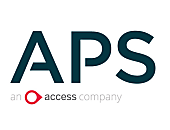5 areas your practice needs to focus on for the future of tax
TaxIf you are ready to embrace the changing tax industry and attract the best people – and clients – to your practice, here are some practical tips to boost your success.
Technology is driving new and exciting changes across the tax sector, but there are some key areas the tax profession will be affected for years to come. Let’s dive into these areas of advancement and explore ways that tax practices can embrace – rather than fear – these changes.
1. The power of data
Powerful big data has completely changed the way professionals undertake tax work. Artificial intelligence (AI) and machine learning (ML) allow practices to deploy technology that processes huge amounts of data from a multitude of silos, with all key information able to be analysed in real-time.
The potential of AI and ML is such that businesses will be at a point where the details of all transactions can be quickly and easily investigated and classified for tax purposes.
2. Streamlining collections
Rather than relying on the time-consuming, ad-hoc methods formerly used to collect data, today practices can use robotic process automation (RPA) to completely streamline the collections and labelling process.
Leveraging the power of AI and ML to automatically classify ‘transactions’, we can expect RPA technology to continue to become even smarter in the coming years. Ultimately, these AI-powered tools will reach a point where their current capabilities in automating high-volume, repetitive tasks will seem insignificant by comparison.
3. Smarter decision-making
In addition to how AI streamlines the collection and labelling of tax data, it is also supports practices in decision-making. Indeed, with the right cognitive technologies, tax professionals can leverage machine learning, pattern matching, natural language processing (NLP) and other automated efficiencies to undertake complex tax analysis.
By reducing time and energy needed to perform tasks, and improving the quality and accuracy of your analysis, embracing these innovations makes taxation more efficient. And with smarter insights, you can make smarter decisions for your practice.
4. Knowledge at your fingertips
With the internet connecting everyone in the world, information is becoming more democratised by the second. If a tax professional needs to know the tax rate in Uzbekistan or the data-collection privacy rules in California, they can find it in a matter of moments. This will continue as online resources expand and people find new ways of connecting through digital means.
Experts also believe that the democratisation of knowledge will lead to greater transparency – and easier access to – information, which may change the way taxpayers and authorities interact with each other.
5. The traditional tax office has shifted
The rise of online platforms in recent years means the physical workplace has forever changed. The tax and accounting sector is not immune to major shifts and the pandemic has rapidly accelerated the move to hybrid work across the industry.
Indeed, labour platforms, collaborative forums and social media tools have created more open networks, and tax professionals are realising that they can customise the way they work.
From freelancers who can jump straight into task-based work, to outsourcing entire projects to remote tax professionals, the ‘traditional tax office’ is no longer made up of full-time, in-house staff.
Using technology to your tax advantage
Technology advancements will continue to influence the tax profession for the foreseeable future, so if you haven’t already started updating your technology suite then now is the time! Here are some of the ways digital tools can help you thrive:
- Digital workflows: Deploy digital workflows to help improve accuracy and generate new insights that promote scalability efforts.
- Reduce repetitive tasks: Leverage tax manager software integrations like e-signatures (which reduce time and paperwork) when preparing and lodging tax for clients.
- Centralise data: Explore the value of post-compliance reporting and advanced analytic solutions. A central repository can be used to collect and analyse large swathes of data that can inform future decision-making.
- Embrace a hybrid future: Don’t neglect technology that supports a hybrid workplace. For modern tax professionals to succeed, there must be a clear connection between the home office and the business office.
Next step
The right Tax and compliance software can help you get the most out of your teams and the most insightful data from your clients. Talk to us for more information or request a demo today.
APS is a division of Reckon, an ASX listed company. We develop the software used by the best accounting firms in Australia and New Zealand to run their business’ and advise their clients.







You are not authorised to post comments.
Comments will undergo moderation before they get published.